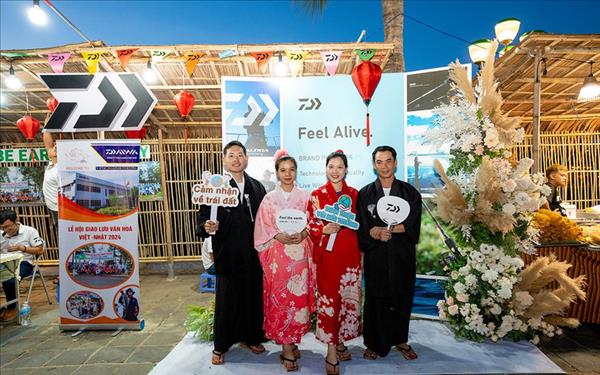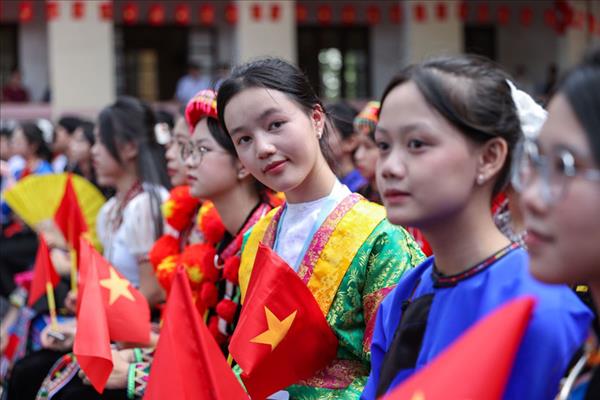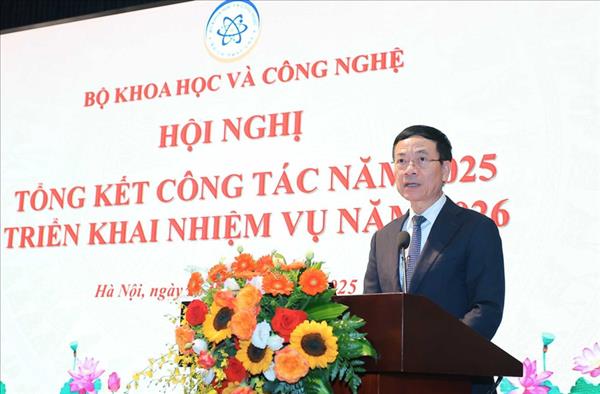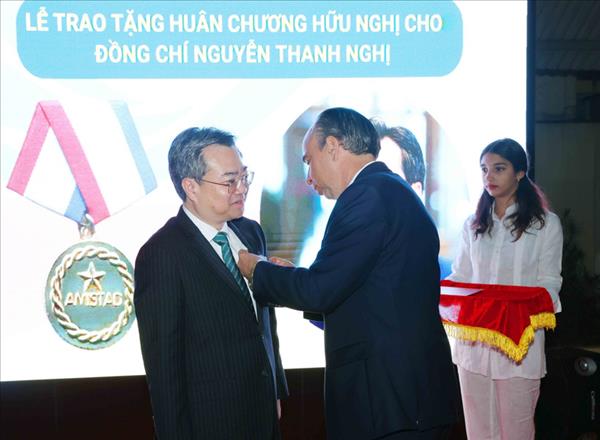Hanoi, November 24 (VNA) – As part of its traditional attachment to the nation, the Vietnam Buddhist Sangha (VBS) has considered external affairs a key task in line with the country’s international integration.
VBS active in international cooperation
Most Venerable Thich Nhat Tu, Deputy Head of the VBS Central Committee’s International Department, highlighted religious external affairs in the nation’s diplomacy, saying that Buddhism is associated with non-violence and the principle of ahimsa (no harm), therefore, the religion’s external affairs have helped consolidate friendship with other Buddhist nations.
It has also hosted and attended international conferences and workshops, leaving good impression on international friends. Vietnamese Buddhist dignitaries have welcomed hundreds of international Buddhist delegations and organisations.
International cooperation in education has also been performed to enhance the capability of monks and nuns. The Vietnam Buddhist Academy in Ho Chi Minh City has signed cooperation deals with 11 Buddhist universities, mostly in Thailand, China and India, according to Most Venerable Thich Nhat Tu, who is also deputy director of the academy.
The VBS has also worked to help international friends understand more about Vietnam’s Buddhism, people and religious policies, thus contributing to the US’s lifting of Vietnam's CPC (countries of particular concern) status in 2008, he said.
According to the VBS’ Information Communication Committee, the VBS has played an active role in Buddhist organisations worldwide, including the World Fellowship of Buddhists in Colombo, Sri Lanka; the Asian Buddhist Conference for Peace; the International Organising Committee for the UN Day of Vesak in Thailand; the Committee for International Buddhist Colleges and Universities in Thailand; and the International Buddhist Confederation in India.
In the past tenure, 300 monks and nuns were sent abroad for study, with 200 earning masters and postgraduate diplomas in Buddhism studies and returning home, working in VBS chapters and teaching at Buddhist schools.
Numerous Vietnamese Buddhist dignitaries have been been recognised for their contributions to global Buddhism studies. In 2017, Most Venerable Thich Thien Nhon, Chairman of the VBS’ Executive Council, received an honourary doctorate degree and the Global Buddhist Symbol Award from the International Buddha Education Institute in India and the World Alliance of Buddhist Leaders, while Most Venerables Thich Thien Phap and Thich Nhat Tu were presented with the Global Buddhist Ambassador Awards.
According to Most Venerable Thich Thanh Nhieu, Vice standing Chairman of the VBS’s Executive Council, Vietnam is the second country in the world, together with Thailand, to host the UN Day of Vesak International twice, in 2008 and 2014.
The 2014 edition was held in the nation’s largest pagoda of Bai Dinh in Ninh Binh province. It attracted nearly 1,500 religious delegates from 95 Buddhist nations and territories, representatives from the United Nations, UNESCO, foreign embassies in Vietnam, and about 20,000 Buddhist monks, nuns and followers both at home and abroad, said Most Venerable Thich Thanh Nhieu, who was Chairman of the 2014 UN Day of Vesak Organising Committee.
As part of its external affairs, the VBS has also helped relieve sufferings of Buddhists abroad. The VBS’ Executive Council called on dignitaries, monks and nuns nationwide to donate to help Nepalese people affected by an earthquake in April 2015.
Vietnam Buddhism helps foster national great solidarity
By caring for the spiritual and cultural life of overseas Vietnamese, the VBS has gained their trust, reflected in the increasing number of Associations of Vietnamese Buddhists (AVB) abroad. More and more Vietnamese pagodas have been built overseas, fulfilling religious practice needs among Vietnamese expats.
To date, 11 AVB have been established in Germany, Belgium, France, the Czech Republic, Ukraine, Hungary, Slovakia, the Republic of Korea, Japan, and most recently in Angola and Mozambique. They connect overseas monks, nuns, Buddhist followers and Vietnamese people with those at home.
The AVB in Japan was established in November 2013, said Venerable Thich Tam Tri, president of the association, who is in Hanoi to attend the VBS’ eighth Congress, adding that the association has contributed to consolidating Vietnam – Japan ties via religious practices, propagation and cultural exchanges.
To introduce Japanese culture to Vietnamese people at home, the association has hosted Buddhist cultural activities in Vietnam, including religious exchanges with Japanese Buddhist sects, Japanese Zen-style tea drinking, and bringing Japanese cherry blossom trees to be planted in Vietnam, she said.
The association has established numerous Dao Trang (groups of Buddhists) in Japan, namely Nisshin Kutsu pagoda, Tinh Tan Hamamatsu, and An Tinh Duong Kumagaya, Aichi Phuoc Hue pagoda. They have been active in charity work, providing assistance for locals, Vietnamese people in Japan and at home, giving food to homeless people in Asakusa and Ueno in Taito district, Tokyo, and teaching Vietnamese language to children of Vietnamese expats, according to Venerable Thich Tam Tri.
The Nisshin Kutsu pagoda offered one-month of accommodation and food to nearly 100 Vietnamese people affected by the earthquake in Tokyo in 2011, she added.
A number of cultural exchanges have been conducted to enhance solidarity among overseas Vietnamese in Japan, she said, adding that the association works with the Association of Vietnamese Students and the Association of Vietnamese Businesses in Japan to host Vietnamese traditional festivals and art performances.
Dr. Dang Tai Tinh, former Director of the International Cooperation Department under the Government Committee for Religious Affairs, highlighted international activities of the VBS and its units, saying that they have given international friends and Buddhists an insight into Vietnamese Buddhism and culture.
Their efforts have also helped the international community have a sound view of Vietnam’s policies on freedom of religion and belief, thus earning international spiritual and material support for the country’s building and development, Tinh affirmed.
With significant achievements made over the past seven tenures, the VBS has secured its position on the world Buddhist map while affirming its role of a major religion of Vietnam, contributing to cooperative ties between Vietnam and other nations, particularly Buddhist ones, Tinh stressed.
VBS active in international cooperation
Most Venerable Thich Nhat Tu, Deputy Head of the VBS Central Committee’s International Department, highlighted religious external affairs in the nation’s diplomacy, saying that Buddhism is associated with non-violence and the principle of ahimsa (no harm), therefore, the religion’s external affairs have helped consolidate friendship with other Buddhist nations.
It has also hosted and attended international conferences and workshops, leaving good impression on international friends. Vietnamese Buddhist dignitaries have welcomed hundreds of international Buddhist delegations and organisations.
International cooperation in education has also been performed to enhance the capability of monks and nuns. The Vietnam Buddhist Academy in Ho Chi Minh City has signed cooperation deals with 11 Buddhist universities, mostly in Thailand, China and India, according to Most Venerable Thich Nhat Tu, who is also deputy director of the academy.
The VBS has also worked to help international friends understand more about Vietnam’s Buddhism, people and religious policies, thus contributing to the US’s lifting of Vietnam's CPC (countries of particular concern) status in 2008, he said.
According to the VBS’ Information Communication Committee, the VBS has played an active role in Buddhist organisations worldwide, including the World Fellowship of Buddhists in Colombo, Sri Lanka; the Asian Buddhist Conference for Peace; the International Organising Committee for the UN Day of Vesak in Thailand; the Committee for International Buddhist Colleges and Universities in Thailand; and the International Buddhist Confederation in India.
In the past tenure, 300 monks and nuns were sent abroad for study, with 200 earning masters and postgraduate diplomas in Buddhism studies and returning home, working in VBS chapters and teaching at Buddhist schools.
Numerous Vietnamese Buddhist dignitaries have been been recognised for their contributions to global Buddhism studies. In 2017, Most Venerable Thich Thien Nhon, Chairman of the VBS’ Executive Council, received an honourary doctorate degree and the Global Buddhist Symbol Award from the International Buddha Education Institute in India and the World Alliance of Buddhist Leaders, while Most Venerables Thich Thien Phap and Thich Nhat Tu were presented with the Global Buddhist Ambassador Awards.
According to Most Venerable Thich Thanh Nhieu, Vice standing Chairman of the VBS’s Executive Council, Vietnam is the second country in the world, together with Thailand, to host the UN Day of Vesak International twice, in 2008 and 2014.
The 2014 edition was held in the nation’s largest pagoda of Bai Dinh in Ninh Binh province. It attracted nearly 1,500 religious delegates from 95 Buddhist nations and territories, representatives from the United Nations, UNESCO, foreign embassies in Vietnam, and about 20,000 Buddhist monks, nuns and followers both at home and abroad, said Most Venerable Thich Thanh Nhieu, who was Chairman of the 2014 UN Day of Vesak Organising Committee.
As part of its external affairs, the VBS has also helped relieve sufferings of Buddhists abroad. The VBS’ Executive Council called on dignitaries, monks and nuns nationwide to donate to help Nepalese people affected by an earthquake in April 2015.
Vietnam Buddhism helps foster national great solidarity
By caring for the spiritual and cultural life of overseas Vietnamese, the VBS has gained their trust, reflected in the increasing number of Associations of Vietnamese Buddhists (AVB) abroad. More and more Vietnamese pagodas have been built overseas, fulfilling religious practice needs among Vietnamese expats.
To date, 11 AVB have been established in Germany, Belgium, France, the Czech Republic, Ukraine, Hungary, Slovakia, the Republic of Korea, Japan, and most recently in Angola and Mozambique. They connect overseas monks, nuns, Buddhist followers and Vietnamese people with those at home.
The AVB in Japan was established in November 2013, said Venerable Thich Tam Tri, president of the association, who is in Hanoi to attend the VBS’ eighth Congress, adding that the association has contributed to consolidating Vietnam – Japan ties via religious practices, propagation and cultural exchanges.
To introduce Japanese culture to Vietnamese people at home, the association has hosted Buddhist cultural activities in Vietnam, including religious exchanges with Japanese Buddhist sects, Japanese Zen-style tea drinking, and bringing Japanese cherry blossom trees to be planted in Vietnam, she said.
The association has established numerous Dao Trang (groups of Buddhists) in Japan, namely Nisshin Kutsu pagoda, Tinh Tan Hamamatsu, and An Tinh Duong Kumagaya, Aichi Phuoc Hue pagoda. They have been active in charity work, providing assistance for locals, Vietnamese people in Japan and at home, giving food to homeless people in Asakusa and Ueno in Taito district, Tokyo, and teaching Vietnamese language to children of Vietnamese expats, according to Venerable Thich Tam Tri.
The Nisshin Kutsu pagoda offered one-month of accommodation and food to nearly 100 Vietnamese people affected by the earthquake in Tokyo in 2011, she added.
A number of cultural exchanges have been conducted to enhance solidarity among overseas Vietnamese in Japan, she said, adding that the association works with the Association of Vietnamese Students and the Association of Vietnamese Businesses in Japan to host Vietnamese traditional festivals and art performances.
Dr. Dang Tai Tinh, former Director of the International Cooperation Department under the Government Committee for Religious Affairs, highlighted international activities of the VBS and its units, saying that they have given international friends and Buddhists an insight into Vietnamese Buddhism and culture.
Their efforts have also helped the international community have a sound view of Vietnam’s policies on freedom of religion and belief, thus earning international spiritual and material support for the country’s building and development, Tinh affirmed.
With significant achievements made over the past seven tenures, the VBS has secured its position on the world Buddhist map while affirming its role of a major religion of Vietnam, contributing to cooperative ties between Vietnam and other nations, particularly Buddhist ones, Tinh stressed.
VNA/VNP

















